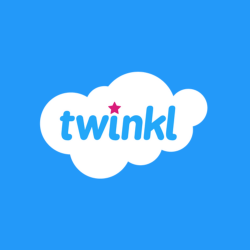This latest Pre-to-3 column looks at a unique partnership between early education researchers and policymakers in New York City. Past installments of Pre-to-3 can be found here.
Whether they work in elementary schools or community-based centers, those who guide and lead preschool teachers often don't have much training in how to be leaders. And that includes developing a cultural understanding of the families who attend their programs and the neighborhoods in which they live.
That's just one of the preliminary findings of a research project focusing on New York City's universal prekindergarten (UPK) program that will be presented next week at the American Educational Research Association conference in Manhattan.
The study, conducted by Faith Lamb-Parker of Bank Street College of Education and Sheila Smith at Columbia University, examines the connections between the way leaders support social-emotional development in preschool as well as culturally responsive practices. The project would not have been possible, however, without the support of the New York City Early Childhood Research Network, a unique partnership between researchers from eight higher education institutions and four city agencies to answer important questions about early-childhood education in New York City. Directors from local programs have also provided their perspectives on the investigations.
"This afforded us the opportunity to get together with people across New York City, " Lamb-Parker says, adding that it's valuable to brainstorm research questions with leaders of the programs being studied. "We got to know how they think. We got to know what they want."
The Foundation for Child Development in New York City launched the network with a $2 million grant after participating in a 2014 White House summit on early-childhood education, during which former President Barack Obama urged the philanthropic and public sectors to work together.
“We thought, ‘What do people really need in these policy decisions?’” says Jacqueline Jones, president and CEO of the foundation. “We wanted to see how the program was being played out in low-, medium- and high-resource areas.”
Focusing research on how to improve the early-childhood education workforce, including those in administrative positions, is a way “to get a good bang for our buck,” Jones says. “If we could find a way to support the workforce, we could get better outcomes for kids.”
As the New York City Department of Education implements and gradually expands Mayor Bill de Blasio’s plan to offer free preschool to the city’s 3-year-olds, building on the district’s existing UPK program for 4-year-olds, the studies are intended to help guide policy and inform those who are leading local programs.
In fact, policymakers use the monthly meetings “as a sounding board for some of the challenges they are facing now,” says Sara Vecchiotti, a chief program officer at the foundation.
The studies also come at a time when researchers and early-childhood organizations nationally are calling for higher qualifications for early educators and discussing how to further professionalize the field, which ranges from those with high school diplomas to those with advanced college degrees.
Network participants are currently engaged in eight research projects, including the one focusing on leadership. The other seven are:
- a study on dual language learners, led by researchers at Fordham University.
- a comparison of teacher characteristics, professional development, instructional approaches and other elements of UPK programs across settings, also led by the National Center for Children and Families at Teachers College.
- a study at New York University on how teachers with different qualifications are distributed across UPK classrooms and how administrators and teachers use data to improve practice.
- a look at efforts to recruit male educators into UPK involving researchers at the Research Foundation of City University of New York (CUNY) and Borough of Manhattan Community College.
- a study on high-quality family involvement practices with researchers from CUNY, City College of New York and Teachers College.
- an investigation by CUNY and Hunter College of how educators planning curriculum use formative assessments to support their decisions in the classroom on a daily basis.
- an examination by the National Institute for Early Education Research of how coaches use their time and influence early education practice.
Bringing multiple researchers together and creating an ongoing dialogue with policymakers allows the network participants to look at the pre-K system in New York City from a variety of perspectives, says Kate Tarrant, the director of research and evaluation for the New York Early Childhood Professional Development Institute at CUNY. The institute focuses on improving the quality of the early-childhood education workforce in the state and facilitates the network.
She adds that by interacting, the researchers and agency leaders have been able to further refine their research questions. For example, the city was already conducting some research on dual language learners, so the researchers at Fordham are digging deeper to look at what types of instructional practices work best in classrooms with a large concentration of children speaking one language compared to classrooms where multiple home languages are spoken.
"There is something about the research conversation that I believe creates a ton of space for shared investigation and learning," Tarrant says. "It’s very collaborative."
A second foundation has also awarded a grant to the network to expand the work. The Heising-Simons Foundation, based in Los Altos, CA, will fund research focusing on programs for infants and toddlers — allowing the researchers and policymakers to look across the early years. Tarrant says the network would also like to organize a research symposium to involve other researchers, especially those who are early in their career, so they begin to build relationships with policymakers.
Tarrant adds that while the network is focusing on programs in New York City, the lessons learned from the studies will benefit a wide range of early-childhood leaders.
"New York is a great place to be asking and answering those questions," she says. "But they absolutely have relevance to communities across the country."





















